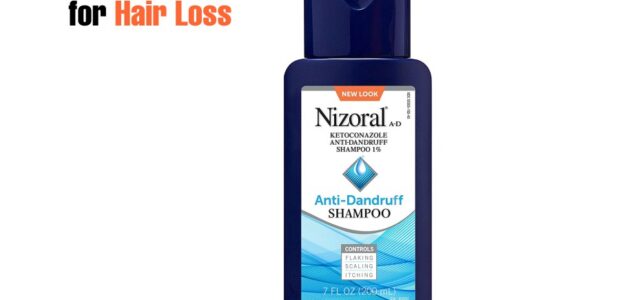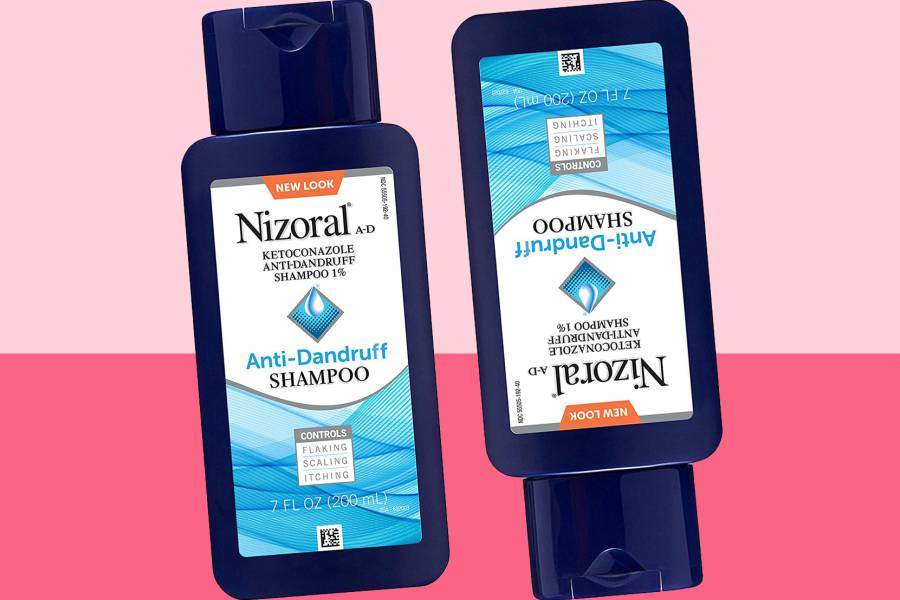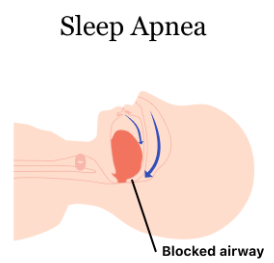
Ketoconazole is an FDA-approved antifungal medicine use to treat various fungal infections that can harm the skin. It’s also a frequent active component in hair loss shampoos and a suggested drug, usually in Nizoral shampoo, as part of an at-home hair loss prevention program.
Here, we describe ketoconazole shampoo uses and how it works as a hair loss therapy. Ketoconazole shampoo usage includes hair loss prevention and treating other scalp issues. Ketoconazole has been scientifically link to increase hair growth, making it a viable hair loss treatment choice. It is straightforward to apply because all that is necessary is to use and rinse in the shower a few times a week.
We’ve also included a list of alternative hair loss remedies if you’re starting to notice a receding hairline or other indicators of male pattern baldness.
What is ketoconazole shampoo & its uses?
Ketoconazole in shampoo is often discuss by hair experts to treat various scalp disorders and is available over the counter. Ketoconazole shampoo for hair loss is commonly use to treat fungal infections, reduce dandruff, and relieve skin disorders such as psoriasis.

Benefits of Ketoconazole shampoo
Ketoconazole shampoo for tinea capitis: As an antifungal medicine, Ketoconazole is often use to treat fungal skin infections that might damage your scalp. Tinea capitis is related to tinea versicolor (a fungal illness that often appears on the trunk and shoulders), tinea cruris (jockey itch), and tinea pedis (athlete’s foot). Tinea capitis, if severe, can cause hair loss and irreversible damage to the scalp.
Ketoconazole in shampoo to treat psoriasis: Ketoconazole shampoo is also used to treat psoriasis, a skin condition that causes the development of red, raised, and scaly areas of skin. If you have scalp psoriasis, you may benefit from taking ketoconazole shampoo either alone or in conjunction with other therapies. Above mention benefits are cite by study conduct by the British Journal of Dermatology. Researchers discovered that a shampoo combining ketoconazole and clobetasol propionate helped reduce psoriasis.
Ketoconazole shampoo for seborrheic dermatitis: Seborrheic dermatitis is an inflammatory condition that causes a greasy, scaly rash on your scalp and skin folds. The inflammation caused by seborrheic dermatitis is frequently itchy, and scratching can result in skin flaking and dandruff. Ketoconazole shampoo is a popular therapy for seborrheic dermatitis and the dandruff it creates.
Is Ketoconazole Shampoo Effective in Hair Loss Treatment?
Several studies have shown that ketoconazole shampoo can help reduce the progression of male pattern baldness and encourage hair growth. One research published in the journal Dermatology, for example, compared Ketoconazole with the hair loss treatment minoxidil to discover which had the best benefits on hair growth.
The researchers observed that 2% ketoconazole shampoo enhanced the number and percentage of anagen hair follicles at a pace comparable to minoxidil.
A comprehensive analysis (a combination of animal and human trials) published in the journal Dermatologic Therapy looked into the effects of Ketoconazole as a hair loss therapy.
Following a study of seven publications linking Ketoconazole and alopecia, the researchers concluded that Ketoconazole appears to provide a clinically meaningful improvement and is a viable treatment choice for male pattern baldness.
Finally, little research released in 2019 discovered that Ketoconazole aids in treating pattern hair loss in women.
While there is no robust data to support Ketoconazole as a definitive hair loss remedy, the studies that have been conducted demonstrate that Ketoconazole has real potential as a therapy for hair loss, such as male pattern baldness.
How Does Ketoconazole Aid in the Prevention of Hair Loss?
While scientific studies suggest that Ketoconazole promotes hair growth in general, they are significantly less definitive regarding how and why it does so.
You must have heard about DHT, an androgen that can cause hair follicles to miniaturize and eventually stop generating new is the cause of male pattern baldness. A 2004 scientific research, on the other hand, proposes that Ketoconazole may alter the DHT pathway in your scalp, potentially decreasing DHT and delaying hair loss. The researchers advise that Ketoconazole be taken with Finasteride for more powerful DHT suppression and improve effects.
While this is a hopeful discovery and an intriguing notion, it is vital to remember that it is merely a hypothesis. There haven’t been any clear studies that suggest Ketoconazole has any quantifiable effect on DHT levels, even though it has been found to have some good effect on hair growth.
Ketoconazole Shampoo Varieties
There are several varieties of ketoconazole shampoo available to treat seborrheic dermatitis and other scalp issues:
- Ketoconazole shampoos that are gentle. These contain a small dose of Ketoconazole, usually less than 1% ketoconazole. This type of ketoconazole shampoo is available without a prescription to treat dandruff.
- Shampoos containing 2% ketoconazole and other chemicals treat seborrheic dermatitis, dandruff, and fungal infections. Ketoconazole may be use with other chemicals in different shampoos, such as salicylic acid or pyrithione zinc.
- These are frequently design to treat dandruff and other scalp-related skin disorders.
How to apply ketoconazole shampoo
It is simple to use ketoconazole shampoo. They can be used every three to four days for eight weeks to manage dandruff or other skin disorders.
Follow these procedures to use over-the-counter ketoconazole shampoo:
- Make sure your skin is not inflamed, cut, or damaged. If your skin is in good condition, moisten your hair before using shampoo.
- For wet hair, use the ketoconazole shampoo. Massage the shampoo into your hair gently.
- Please remove all of the shampoos from your hair by rinsing them out. Repeat the preceding processes until the water runs clear, then gently rinse all of the shampoos out of your hair before finishing.
Following your healthcare provider’s recommendations is critical if you’ve been prescribed a ketoconazole shampoo to treat a fungal infection.
Although you may only need to use this medicine once, it might take many months for your skin to recover and all symptoms of your illness to go away. If you get a reoccurring ailment, you may need to re-use this type of shampoo.
Follow these instructions to use prescription ketoconazole shampoo.
- Wet the afflicted region of your scalp, then gently massage the shampoo into it and the surrounding skin.
- Gently work the shampoo into your skin with your fingertips to create a lather. Allow the shampoo to sit on your scalp for five minutes.
- Rinse the shampoo from your hair and thoroughly wash it off your skin.
- Before using any other hair products, such as conditioner, thoroughly rinse the ketoconazole shampoo from your hair.
Side Effects of Ketoconazole Shampoo
Ketoconazole shampoo does not cause serious adverse effects in the majority of people. Ketoconazole, like other drugs, can occasionally produce adverse effects. These are some examples:
- Skin that is itchy and dry
- Blisters that appear on the scalp
- Changes in the texture of your hair
- Excessively dry or oily scalp and hair
- Itching, stinging, and skin irritation are all symptoms of this condition.
Ketoconazole allergic reactions are infrequent. If the following symptoms show up, you should seek immediate medical attention:
- Hives
- Rash
- Swallowing and breathing difficulties
- Scalp tenderness, swelling, discomfort, or redness
You may also like – What do you choose as the best fast food in the Ketogenic Diet?
Final Takeaway – Ketoconazole shampoo 2 percent is more effective
The shampoo ketoconazole treats dandruff, irritation, flakiness, and hair loss. Because it is more robust, studies suggest that 2 percent ketoconazole shampoo is typically more effective and, as a consequence, is used for more severe symptoms of itching and flakiness.
Ketoconazole shampoo is available in both prescription and over-the-counter formulations. Ketoconazole shampoo may help treat seborrheic dermatitis and dandruff and fungal diseases such as tinea versicolor. If you experience an adverse response to ketoconazole shampoo, you should stop using it. Women who are pregnant or nursing should see their doctor before using the shampoo.



